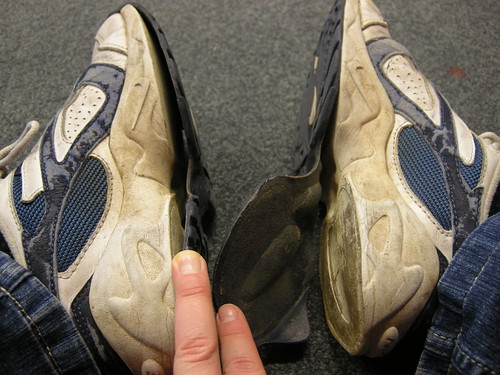On making things
I came across this short documentary this morning:
We Make Things. from Ryan Varga on Vimeo.
Here are my resonant points:
- Technology as the tools we use to communicate with other people.
- Making technology accessible is: looking at something, knowing it, understanding it, taking it apart, putting it back together, remaking something new.
- Understanding the technology as having come from somewhere: as having an origin, as being made.
- I do a lot of work with technology, but I’m not actually interested in technology – I’m interested in people.
- Technologies of various kinds have the power to change our relationship to the world, to other people.
- Not having to allocate technology to an expert. Community is the biggest thing that’s motivating. The tools themselves are boring.
- Development practice in some ways is as meaningful politically as protest and voting.
- The maker movement is portrayed as something that’s new, but it’s not: it’s a return to knowing how things work.
- We’ve been through this era where things got kind of abstracted and sealed off, where we weren’t looking at them. [The technology inside things.]
- It’s very hard for people to connect with a mentor – with a master, if you will – and the information share from generation to generation …we’ve let technology get in between that.
- The separation of language and action. When we describe something linguistically, it’s very easy for us to form what that thing is and it doesn’t necessarily resist us very much. When we make something, the thing we make doesn’t always do what we want it to do.
- When we’re doing critical making we’re not doing craft. We use making, not to come up with some kind of object for display, and not to come up with some kind of product to be sold, but as one way of guiding a shared experience. So we make together, and we think together, and we talk together…
- The MakerBot is something that’s like, even though it’s digital, it’s kind of pulling us back to that to that time before the Industrial Revolution where people truly took time to figure out how things were made and what they were made from.
- Objects with no traces of their production process are the wrong goal.We need to figure out ways to see the traces.
- The great revolution: it’s not going to be people actually doing, it’s going to be that people understand what people that do, do
Those ideas around traces of the making process and understanding the origins of technology were in my head as I walked around Eastside this afternoon collecting data for Uncertain Eastside.
It’s important to the work, and to me, that the two GPS units are carried around the city by hand, and that I push myself physically to do this (I do two circuits back-to-back, 7 and a bit miles). That those screens of numbers, of data, have an origin in human toil.
update: And then, as if to prove the point, I processed the data from the day’s walking and got this, so I’ll have to do it again:



well said!
if I was there I would walk the route with you and give away rfid tagged balloons.
keep up the good work.